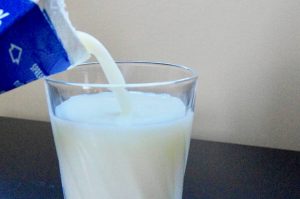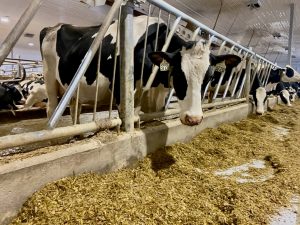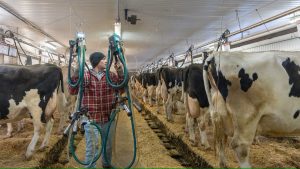
Canadians’ love for dairy products is about to be put to the test since the prices of most of those products are about to rise significantly.
It goes without saying that milk and cream are important parts of our diet. And cheese, yogurt and butter are cherished by many people. But the average household will now be forced to spend between 10 and 15 per cent of their food budget on them.
Last fall, the Canadian Dairy Commission recommended an increase of at least 8.4 per cent on the price of milk paid to producers. For butter, the increase will exceed 12 per cent. This is the largest increase announced by the commission in more than 50 years, almost double the previous record.
Under Canada’s supply management system, the Crown corporation must identify more than 200 dairy producers annually to determine the real costs of production on the farm. Once the data is collected, it’s averaged and used to determine a fair and equitable income for dairy producers.
This simple process is marred with anomalies and secrets.
Few people know exactly where the figures presented come from, let alone what the commission does. Even many dairy farmers have no idea how the commission works. This Crown corporation, owned by all Canadians, is managed by two or three people affiliated with the dairy industry, and it employs more than 80 people. Its very public mandate gives it the power to influence food affordability in Canada, at least for dairy products.
For this, the commission obviously has a duty of transparency. But it fails to fulfill this duty every year, since the commissioners make decisions without necessarily presenting those decisions and the process clearly and in detail to the public.
The commission and the Dairy Farmers of Canada are simply one and the same – and they shouldn’t be.
Last fall, the commission made an amazingly brief statement on rising production costs. But it didn’t share any details that would justify such an increase. It never does.
Many suspect the sample design is skewed to favour farmers. For example, since the census isn’t mandatory, the sampling may include less efficient farms, thus pushing cost estimates higher. It’s just impossible to know.
Moreover, the commission didn’t share the news about the increase widely. The media had to get involved to make the hike known to the public. Without fanfare, the commission simply posted a 300-word text on its web page – a page few people consult. The phone number shown on its website is also out of service and has been for months.
The commissioners hide behind contracts that ensure the anonymity of dairy producers. It’s a silly argument since, in research, it’s always possible to disclose figures by hiding the identity of the participants in a survey. This has always been done, but the commission refuses to share its primary data, arguing that it needs to protect the anonymity of participating farms.
Unlike other food products, milk is nothing less than a public good due to the state-sanctioned public quota regime. So unlike other commodities and food products, the level of accountability related to milk must be upheld.
This increase will force some processing companies to raise their prices. Before the holiday season, the big firm in the dairy sector, Lactalis Canada, announced that it was raising its prices by 15 per cent to its customers – the food retailers from whom we buy our dairy products.
We’ve heard some retailers are refusing to pay more to remain competitive. Consequently, two things can happen:
· Some processors may simply stop selling some dairy products since they can’t make a profit. If this happens, expect more unreported milk dumping in rural communities. The Dairy Farmers of Canada will never want the public to know about this practice.
· Or dairy processors will simply start unlawfully importing dairy proteins from the U.S., where industrial milk is three times cheaper.
Both scenarios will lead to more dairy farms disappearing, and that will be a disaster.
Meanwhile, a Canada-United States-Mexico Agreement tribunal recently ruled that Canada is unfairly blocking the entry of certain dairy products destined for our market.
Apparently, import quotas offered by the federal government were granted to companies linked to Canadian dairy. These organizations are obviously not motivated to import products from elsewhere. Prices and market shares for their own products could drop. In other words, Canada got caught cheating on the Americans.
Meanwhile, Canadian taxpayers are paying nearly $2 billion (almost $200,000 per farm) in compensation to dairy farmers for lost market share as a result of more foreign products coming into Canada. But barely anything is coming in – what a racket.
The federal government’s hypocrisy regarding dairy is costing all Canadians, both as consumers and taxpayers. The lack of transparency to better serve the public is more painfully obvious by the day.
That means Canadians will keep paying more for this white gold at the store, all the while subsidizing dairy farmers without really knowing why.
Dr. Sylvain Charlebois is senior director of the agri-food analytics lab and a professor in food distribution and policy at Dalhousie University.

























